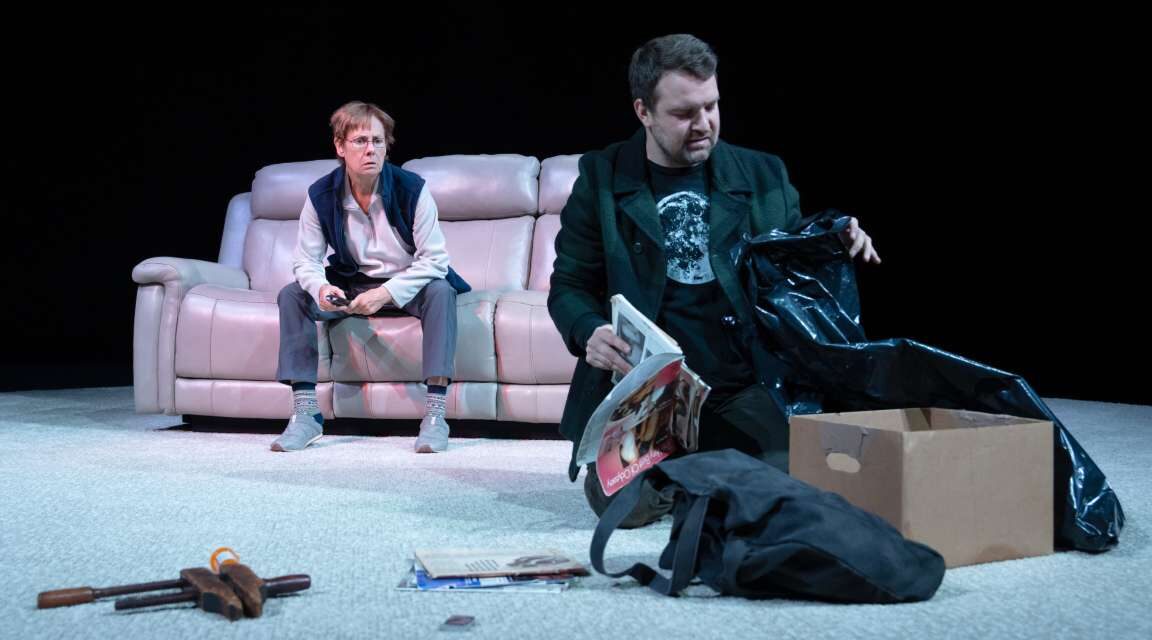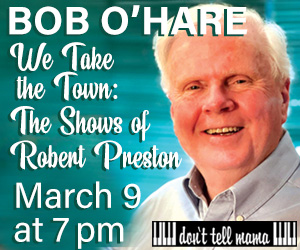By Stuart Miller…
As Sarah she sneers and snarks her commentary on life but her actions reveal a hidden heart.
In the last two decades, New York theatergoers have been fortunate to have Laurie Metcalf as a regular stage presence– in roles from November” to “A Lie of the Mind” to “The Other Place” to “Hillary and Clinton” she has served up wry and sardonic barbs that cover (and gradually reveal) the complex human underneath the cover.
So it’s not surprising to learn that Chicago’s Steppenwolf Theatre Company commissioned Samuel D. Hunter’s “Little Bear Ridge Road” to bring Metcalf back to the place she started in 1979. Of course, they’d want their turn. But now “Little Bear” brings Metcalf back to Broadway in another memorable role, in which she bristles at most human contact, even as she can’t help but help those who need it… while suppressing her own need for help.
Metcalf plays Sarah, who lives alone on a hilltop in Idaho. (She elevates even the simplest lines to earn laughs or pathos as demanded: “Yeah, well, we got a good view up here. Thought once about buying a telescope but, you know. Then I’d own a telescope” may not read like much but she makes it say a lot about Sarah’s worldview.)
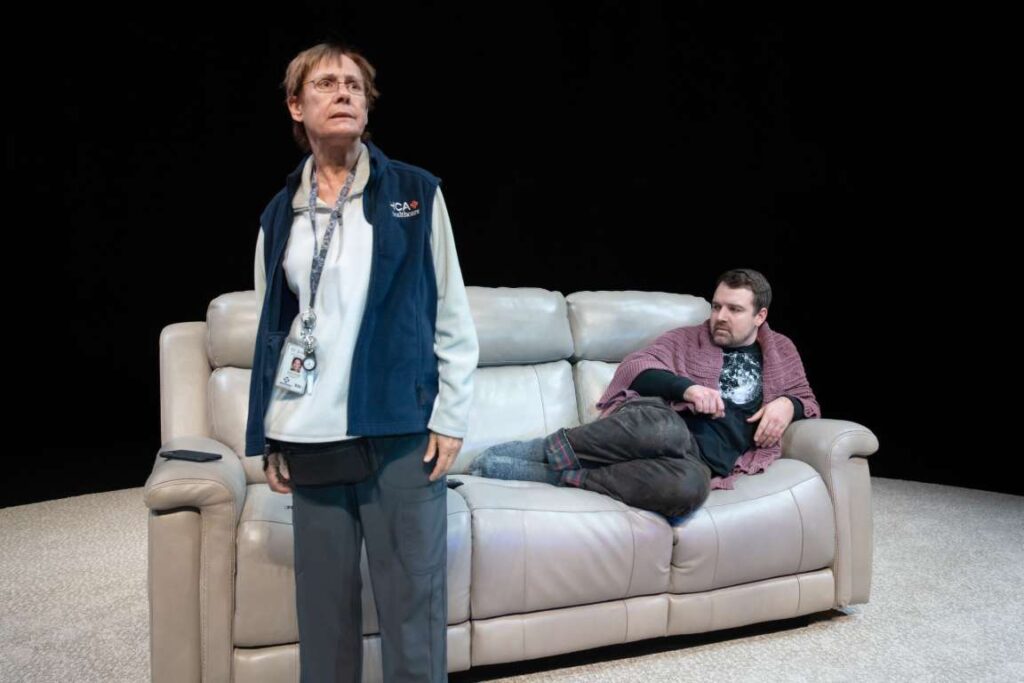
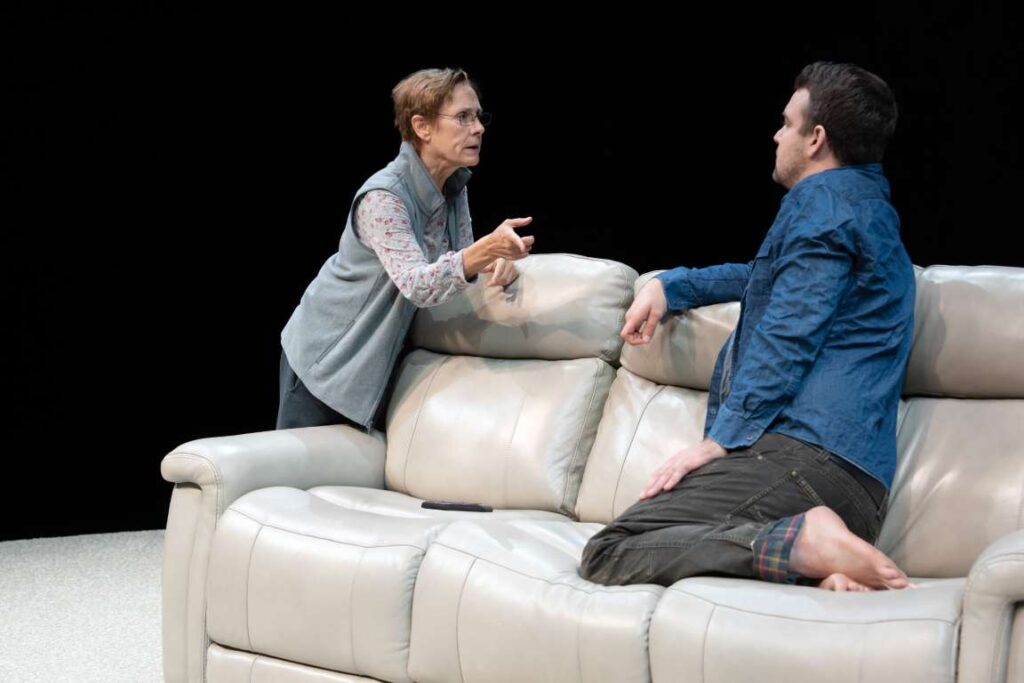
Her husband is long gone and her brother, a meth head whom she reluctantly gave money and other assistance to, has just died. That has brought home Sarah’s nephew, the emotionally scarred and stunted Ethan (Micah Stock) to sell off his father’s house. Ethan is gay, which his father never accepted and he’s surprised to learn that snarling Sarah doesn’t care one whit.
“That’s the most interesting thing about you,” she says, also expressing disbelief that he thought she would be homophobic because of religious beliefs. “I’m an atheist,” she barks.
Clearly this is not a family that communicates well. In fact, when Ethan, a failed writer, first arrives from Seattle, he can’t even bring himself to discuss his life or his father or, well, pretty much anything. And while Sarah pokes and prods till she shakes things loose from Ethan, she’s keeping her own secret buried until it can’t be hidden anymore.
Ethan ends up staying on: in his mind, he’s providing much needed help to Sarah while in her mind he’s hiding from the world while Sarah’s friend Vicky (heard in a phone call) believes Sarah uses saving Ethan from his own depression and haplessness as an excuse to do her own hiding, just as she had never left her home to watch out for her troubled brother.
The play is set on a stage that’s bare except for Sarah’s expansive couch where they watch terrible TV together and complain about it. (“Oh it’s one of those reality things. I’ve seen every episode, it’s so stupid,” Sarah says. “That one? She’s my favorite. Dumb as a brick.”)
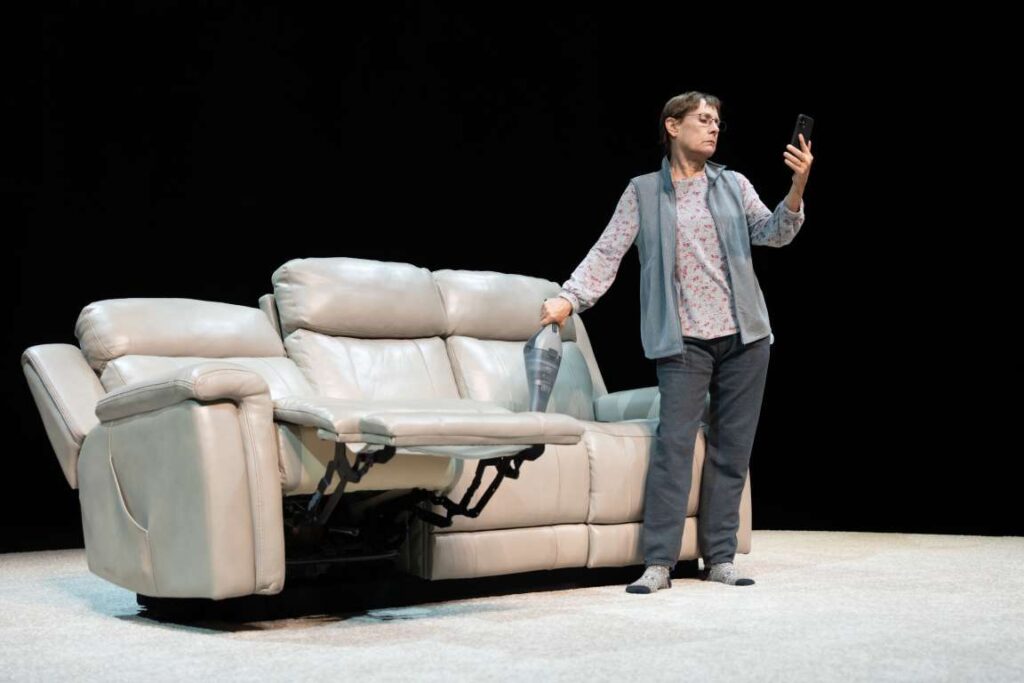
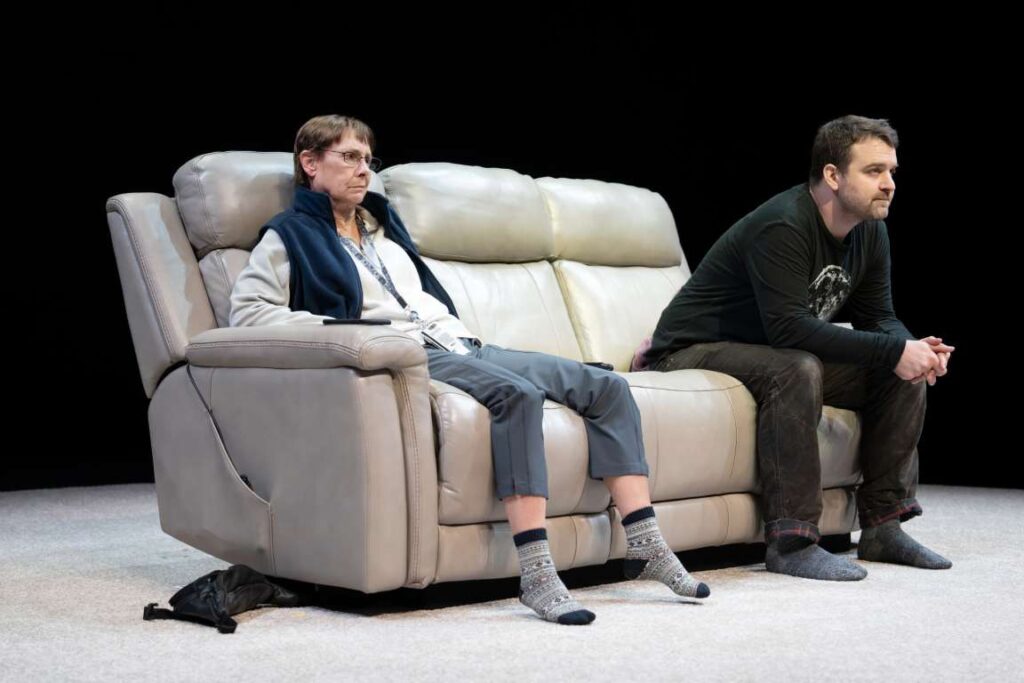
That sparseness not only fits their lives but also the play’s opening scenes– it begins during the pandemic and the heightened isolation seems to suit both Sarah and Ethan just fine. As the world opens up, Ethan meets James (John Drea), who is getting his master’s degree in astrophysics and the two begin dating and then fall in love.
Hunter has long written intimate plays that capture American loneliness and the desire for connection in plays, usually set in Idaho, like “The Whale,” “Lewiston/”Clarkson” and “Grangeville.” So he’s right at home here, but it sometimes feels like he should have pushed himself harder. The early scenes between Sarah and Ethan crackle because everything Sarah says feels like a shock and a bare truth about herself or humanity but the first time Metcalf leaves the stage– when Ethan and James meet up for a date– the show turns ordinary and loses momentum.
Although it regains its footing once Sarah, Ethan and James are all interacting together, James is too thinly sketched as a character, serving mostly as an object of desire or fear or frustration for Ethan–even the explosive and powerful fight about money and privilege near the end is pretty one-sided.
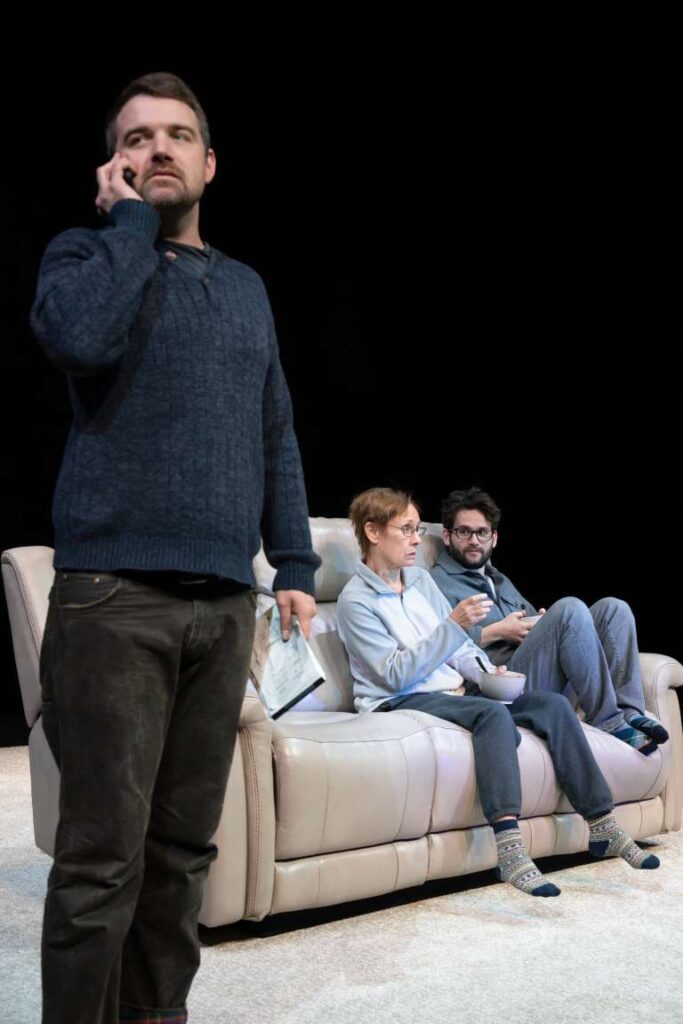
Another minor problem is that Ethan was supposedly a fiction writer yet there’s nothing about him that seems to indicate that. I know it’s impossible to say that someone “seems like a writer” but I had the same issue with Jennifer Lawrence’s character in the new movie “Die My Love”– there should be some indication that these aspiring writers actually want to write. Ethan doesn’t read, he doesn’t seem to love language or communicate well, he’s not really self-aware. Stock is largely fine as Ethan but sometimes his blustery and often inarticulate emoting (especially his whining) underscores this intangible lack.
While that fight may pack a punch it is a huge weakness as a plot point about how the three characters will navigate their future together or alone: without giving too much away, there’s never a discussion of short-term solutions that will seem obvious to anyone in the audience who has balanced family, career and relationships. (The fact that the money James will be getting can ameliorate their problem never seems to occur to Ethan or James.) Additionally, a confrontation between aunt and nephew about the way Sarah failed Ethan when he was a boy feels half-finished and anticlimactic.
And yet… Sarah is sensitively and exquisitely written and Metcalf is electrifying and feels so alive in the role, whether she’s delivering a withering takedown of a person or the world at large or when she’s hesitantly, grudgingly opening herself up. The role and the performance carry you through the play’s weaker spots so we’re with Sarah to the end as she faces the ultimate crisis. The show’s final moments are a risk, as Hunter goes for last scene that could have played as too cute and pat but he and Metcalf have us so emotionally invested that it is instead satisfying and moving. Sarah herself probably would scoff at the idea and its hints of sentimentality, but underneath, she too would love it.
“Little Bear Ridge Road” is playing at the Booth Theater and runs 95 minutes without intermission.
Photos by Julieta Cervantes

